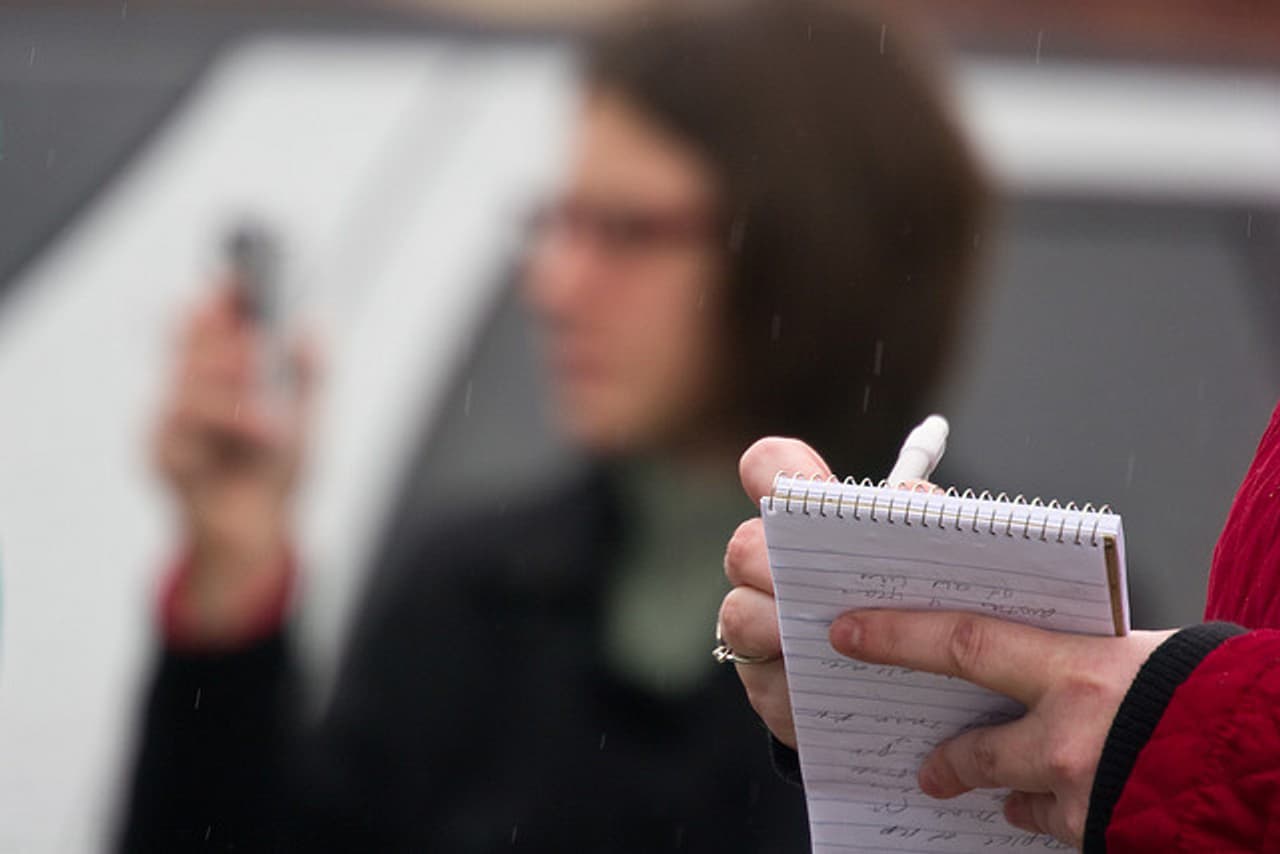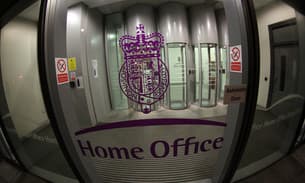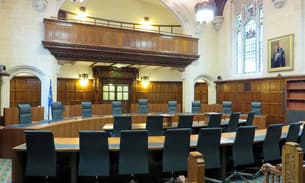
Boost for press freedom campaign as European court prioritises Bureau’s legal challenge to UK snooping laws
Reporter’s notebook by Roger H. Goun/Flickr
The campaign to protect the confidentiality of journalistic communications was given an important boost today after the European Court of Human Rights prioritised a legal challenge brought against the UK government by the Bureau of Investigative Journalism.
The court has given a rare “priority” designation to the Bureau’s case filed last September, meaning a judgment is expected within around a year rather than the usual four or five years.
The Bureau maintains that UK legislation governing the country’s mass surveillance and interception programmes does not adequately protect journalists’ sources.
This would be a breach under Article 8 and 10 of the European Convention on Human Rights, the Bureau argues.
The Court has just completed its initial examination of the case and has now asked the UK government to submit its view on the merits and admissibility of the arguments by May 6.
Conor McCarthy, a barrister at Monckton chambers, who is acting for the Bureau, said: “The case has been considered sufficiently important to justify it leapfrogging all types of other cases.”
If the court rules in favour of the application the UK will be forced to review the laws governing its collection of communications data.
The judgment is likely to affect how the police as well as intelligence agencies treat journalists’ communications. This is because the court is expected to rule on the adequacy of legal safeguards in the Regulation of Investigatory Powers Act (RIPA) against unjustified surveillance by all authorities.
The case may also have implications for other types of communications that require special treatment, or are “privileged”, such as those between lawyers and their clients.
Related subject: A summary of the Bureau’s application to the European Court of Human Rights
Documents leaked by US National Security Agency whistleblower Edward Snowden in 2013 revealed that GCHQ not only collects, stores and scrutinises the content of electronic communications but through a programme known as Tempora also collects large volumes of “metadata” – details of who is contacting whom and when.
This meta data is a particular threat to press freedom as it enables authorities to identify people who are in correspondence with journalists both in the run-up to a story being published and post-publication.
Newspaper editors and other leading media editors are particularly concerned about how these practices make it very difficult for journalists to protect their sources.
More than 100 editors, including those from all national newspapers and other media organisations, including Rachel Oldroyd, managing editor of the Bureau, this week signed an open letter to David Cameron protesting at the snooping of journalistic communications.
Last October the National Union of Journalists and Press Gazette launched a “Save our Sources” campaign against mass surveillance of the media. This followed disclosures that the police had obtained communications between the Sun’s political editor, Tom Newton Dunn, and his Scotland Yard sources in respect of his investigation into the Plebgate affair involving former Conservative Chief Whip Andrew Mitchell and officers guarding the gates at Downing Street.
The police had secured the journalist’s telephone records by using the RIPA legislation.
If the European court rules in favour of the Bureau’s challenge the government will be forced to amend such legislation, affecting the powers not just of the police but also those of a plethora of other agencies including the intelligence services.
Home Secretary Theresa May is currently considering introducing restrictions on the ability of the police to access privileged communications but a Bureau victory may require her to extend similar or greater protection to the surveillance carried out by other agencies.
New Snowden documents reported by the Guardian yesterday revealed that GCHQ had collected emails to and from journalists working for some of the US and UK’s largest media organisations, including the BBC, Reuters, the Guardian, the New York Times, Le Monde, the Sun, NBC and the Washington Post.
The agency had then shared the correspondence on its intranet as part of a test exercise.
Leading barrister Gavin Millar QC, of Matrix Chambers, who is working on the Bureau’s case said yesterday’s Guardian revelations “support our contention that the digital communications of public interest journalists are being harvested and are of great interest to the state”.
He added: “These are Orwellian times. The state should no longer be allowed to claim an absolute right to silence on such fundamental matters. It must start to admit what it should not be denying.”
The Bureau’s case is expected to be heard in tandem with a similar challenge filed by a group of NGOs in 2013.
Big Brother Watch, the Open Rights Group, English Pen and German activist Constanze Kurz are arguing that unchecked surveillance breaches everyone’s privacy rights.
Related story: Gavin Millar QC – Routine government surveillance of journalists’ communications breaches international law




